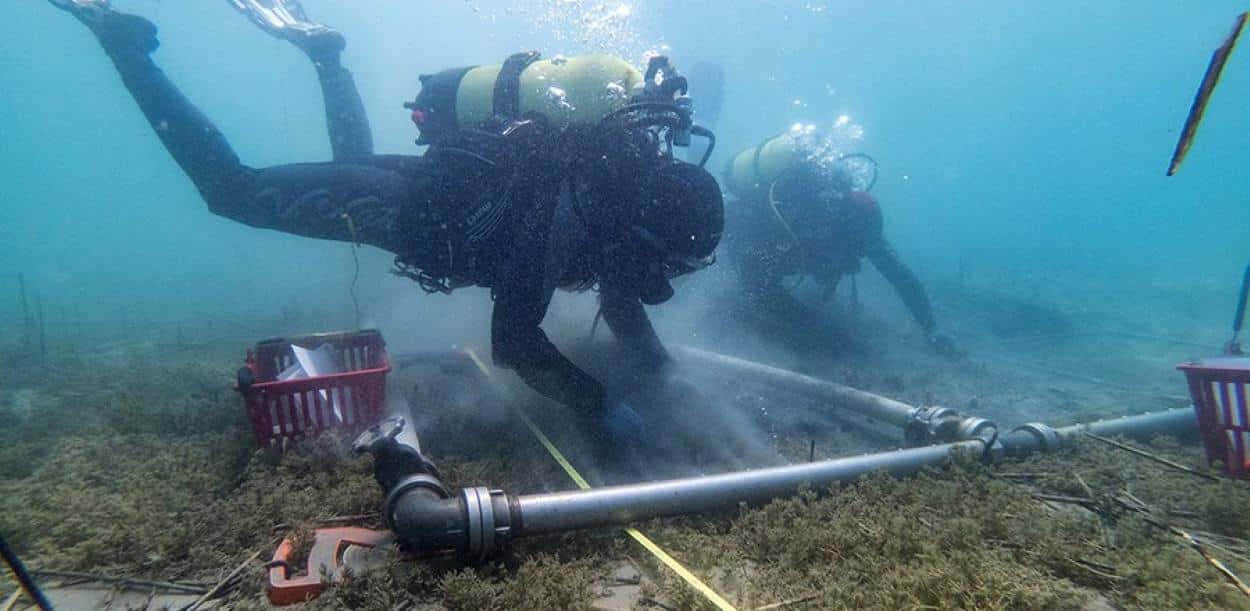Archaeologists excavating along the shores of Lake Ohrid in Albania have discovered what they believe to be the oldest human settlement by a lake in Europe, dating back up to 8,000 years.
A joint Swiss-Albanian team conducts daily dives three meters underwater to retrieve wooden stilts that once supported houses, along with animal bones, copper objects, and intricately carved ceramics. Researchers from the University of Bern and Albania’s Institute of Archaeology confirm the site’s age through radiocarbon dating and dendrochronology, analysing over 1,000 wood samples. The settlement covers six hectares, but excavators have explored only 1% of the site after six years of work.
Archaeologists working on the shores of Ohrid Lake in Albania are convinced they have uncovered the oldest human settlement built on a European lake, finding evidence of an organised hunting and farming community living up to 8,000 years ago https://t.co/Qbrm6CsVu3
— RTÉ News (@rtenews) July 17, 2025The discovery is significant because it predates similar sites in the Alpine and Mediterranean regions by 500 years, providing valuable insights into the early spread of farming in Europe. Lake Ohrid, which is shared by Albania and North Macedonia, is recognised as Europe’s oldest lake, with an estimated age of over one million years.
Researchers continue to recover artefacts from underwater sites, where conditions exceptionally preserve organic materials.
Lead researcher Albert Hafner from the University of Bern states, “Because it is underwater, the organic material is well-preserved, allowing us to learn about the diet and agricultural practices of these people.”
Albanian archaeologist Adrian Anastasi highlights the intelligence of the ancient inhabitants of the site. He states, “By examining how they lived, ate, hunted, fished, and the architecture that supported their settlements, we see they were highly advanced for their time.”






